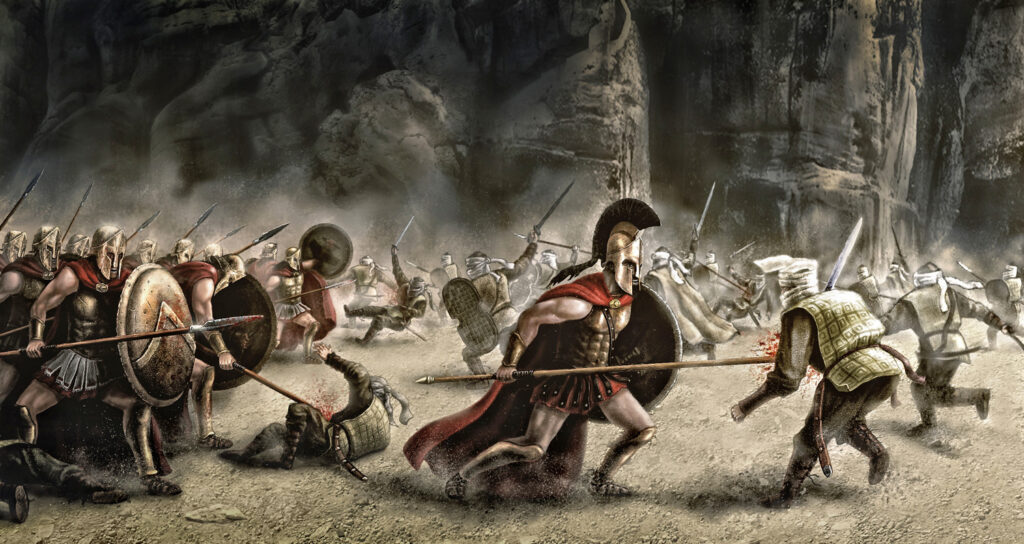Leonidas led the 300 spartans in defeating a 200,000-man new Persian army that was camped out at the city of Thermopylae.
The ancient Spartans were one more trained army in the world. What differentiates them is their unapproachable dedication to their military way of life. One such legend is the Battle of Thermopylae that took place in Greece.
Leonidas, the king of Sparta, decides to have prophetess tell him what she saw on her tripod, and was told that victory would only happen if 300 Spartans fight at their side. With this information, he plans an attack on the Persian army during a sneak peak through the woods at Thermopylae Pass – a narrow low valley that forces to team up for battle camping together on two directions by piling stones and tar pits to cover their approach and make sure they will not be attacked from behind by other Grecco-Persian armies which were coming back from exploring the seas and lands of the West.
The Persian King Xerxes sends his army to invade Greece through a narrow gorge in Thermopylae Pass. There, he plans to ambush and destroy the team that has come out of Greece for them to get through. Leonidas’ army sees the impending attack and prepares to fight back. Xerxes sends him a message, ordering his men to retreat if they want their lives, where Leonidas says “Molon Lave”. After this, Leonidas and the 300 Spartans hold their ground and fight back against the invading Persian army until they die of exhaustion.

A few hours before dawn, the Persian army advanced towards the pass, a small ravine over which the Spartans had built a wall of stone and spears. When approached by a much larger force, Leonidas led his troops across Thermopylae and started tearing down everything in the way. Parts of the large Phocian fleet turned back to Isthmia clinging to the eastern shore, part turned back to Nafpakium on its western shore. The 300 Spartans stayed at Thermopylae and fought until all Persians were killed. The battle, which occurred in 480 BC, resulted in the only known instance of a stand at Thermopylae. What is known of the battle comes from Plato’s “Symposium”, where Socrates tells a story about how on the night before they fought at Thermopylae, Leonidas told his men that if they survived he would name a city after them.
This battle resulted in a decisive victory for Sparta, as well as for Greece. Xerxes will then die of a broken heart when he hears that his soldiers have been defeated. Leonidas was a stubborn and ruthless, but also had a good heart underneath his tough exterior. He believed that by fighting for Sparta, he is doing his part in fulfilling his duty to the gods. He was a fierce warrior and capable of fighting enemies up close. He also has a strong sense of loyalty to Sparta and its citizens.
Leonidas was born in 480 BC to Themistocles, the Athenian general who proposed the construction of the Long Walls connecting Athens with Piraeus. Leonidas was also a descendant of Neoptolemus, son of Achilles. He had two children, Antigone and Isias.
